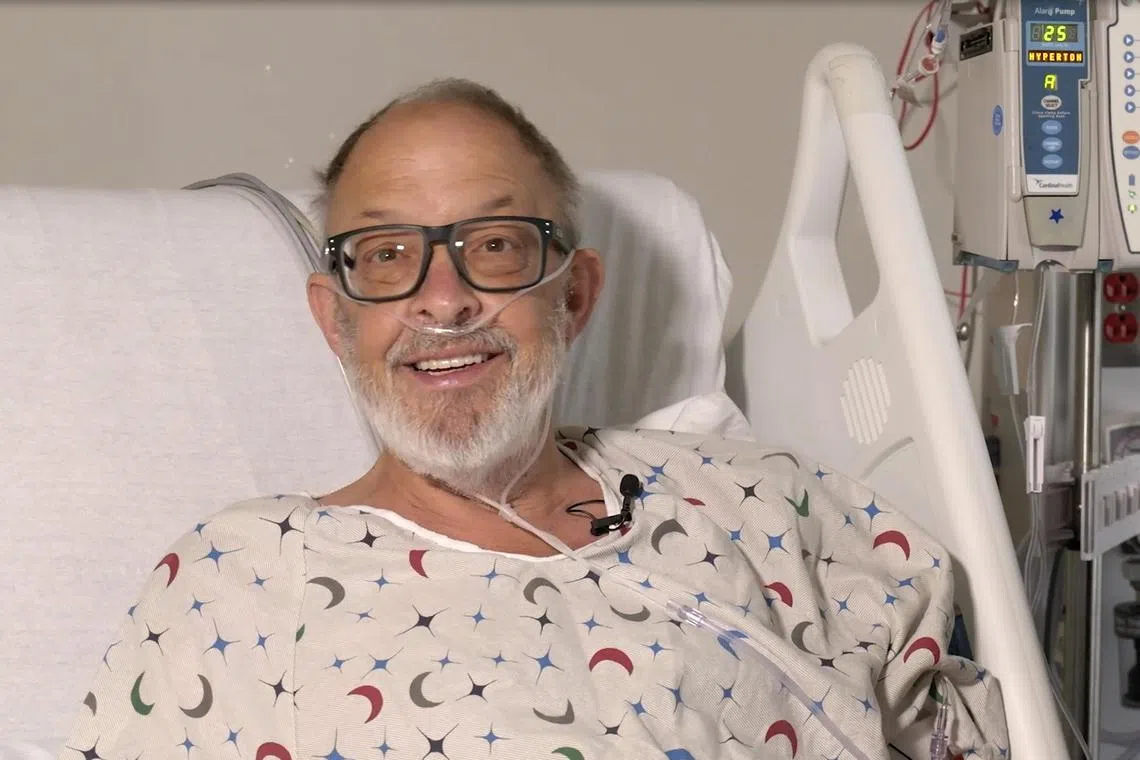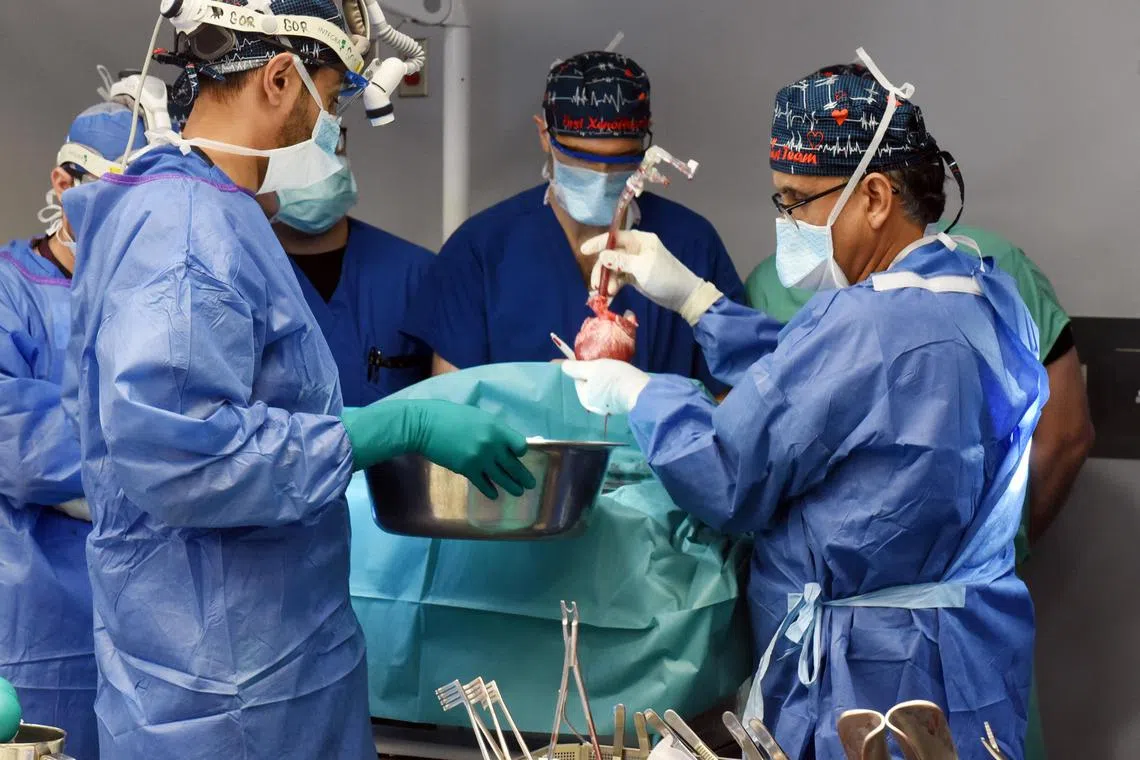Second man in the world to receive an altered pig’s heart dies
Sign up now: Get ST's newsletters delivered to your inbox

Mr Lawrence Faucette was the second patient at the University of Maryland Medical Centre to have had an ailing heart replaced with one from a pig that had been genetically modified.
PHOTO: UNIVERSITY OF MARYLAND SCHOOL OF MEDICINE
FREDERICK, Maryland – A 58-year-old man with heart failure who received a genetically modified pig heart died on Monday, nearly six weeks after receiving the organ, University of Maryland Medical Centre officials announced on Tuesday.
Mr Lawrence Faucette of Frederick, Maryland, was the second patient at the medical centre – and the second in the world – to have had an ailing heart replaced with one from a genetically modified pig, so it would be more compatible with a human recipient and would not be rejected by the human immune system.
The world’ first patient, 57-year-old David Bennett, died in 2022
Both men had terminal heart disease when they received the transplanted organs, and neither recovered sufficiently to leave the hospital.
But while doctors said that Mr Bennett did not show any signs of acute rejection of the new heart, which is the most significant risk in organ transplants, they said that Mr Faucette’s transplanted heart had started to display some initial signs of rejection.
Mr Faucette was engaged in his own care, reading and interpreting his own biopsies, said Dr Muhammad Mohiuddin, a professor of surgery and the scientific programme director of the cardiac xenotransplantation programme at the University of Maryland School of Medicine.
“Mr Faucette’s last wish was for us to make the most of what we have learnt from our experience, so others may be guaranteed a chance for a new heart when a human organ is unavailable,” said Dr Bartley Griffith, the surgeon who performed the transplant.
After the surgery, the transplanted heart performed well, with no signs of rejection during the first month, and Mr Faucette was able to do physical therapy with the aim of regaining his ability to walk, according to a statement from the University of Maryland.

Surgeons preparing a genetically modified pig heart during Mr Lawrence Faucette’s transplant surgery.
PHOTO: UNIVERSITY OF MARYLAND SCHOOL OF MEDICINE
Like Mr Bennett, Mr Faucette was rejected from transplant programmes that use a heart from a deceased human donor. He was too sick, suffering from advanced heart failure and peripheral vascular disease and other complications.
He was in end-stage heart failure on Sept 14 when he was admitted to the University of Maryland Medical Centre, and shortly before the surgery, his heart stopped, and he had to be resuscitated. NYTIMES


